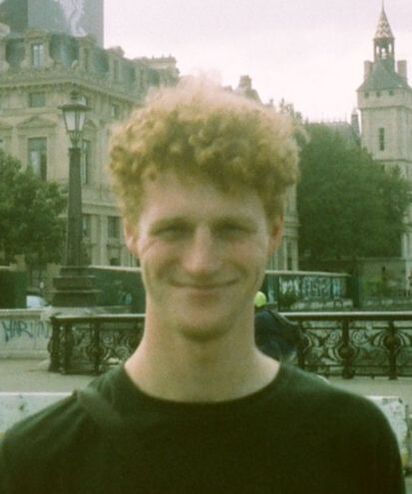|
If I was living in a region recovering from the trauma of conflict and violence, the last thing I would want to hear is some intense progressive tech house provided to the community under the pretext of ‘humanitarian aid’. Although in this article, I will offer evidence showing that music can play an important role in healing trauma and building peace in post-conflict societies. I will explore how music therapy and interventions help children and adults to heal from psychological issues caused by their experiences of violence and how music can help peace building operations in post-conflict societies. The first section will look into the concept of music therapy in post conflict societies and the second will explore how music can contribute to peace building.
Music has been used in healthcare as a tool to improve quality of life, promote psycho-social function and well-being, and cure symptoms of individuals suffering from mental illnesses. Don’t we all feel the urge, after a long stressful day of attempting to write essays, to just lay down on a nice Persian rug, put some Mongolian throat singing on and let our worries drift away, or is it just me… Either way, music has mental health benefits which can help ease stress, anxiety, depression and have real positive impacts on our lives. But can music be employed in post-conflict regions, where communities are starting to rebuild society and peace? If so, how? Music therapy has been increasingly employed by humanitarian agencies in their psychological aid programs. These programs provide adults and children with an opportunity to psychologically heal from their experiences of violence. Feelings of sadness, anxiety and depression, along with severe symptoms of trauma caused by the experience of violence are common in post-conflict communities. This form of therapy attempts to heal and ease trauma, but also provides individuals with an opportunity to express and share their emotions through non-verbal means. Music provides an alternative to speaking about trauma. The method involves providing easy to use instruments to communities and then promoting music improvisation. Now this newly formed band might not sound like the London Symphony Orchestra, but this improvisation enables emotional expression in a judgement free setting and has numerous mental health benefits. To demonstrate how music therapy has been employed in post-conflict communities to heal from trauma, the post-war music intervention of the Pavarotti Music Centre in Mostar, Bosnia-Herzegovina, should be considered. Mostar is a Bosnian city which experienced a violent siege in the Yugoslav war. After the conflict, Mostar remained ethnically divided between Bosnian-Croats and Bosniak. The combination of the experience of violent conflict and a divided community were having detrimental effects on the children of Mostar. Therefore, War Child, a UK humanitarian organization supported by musicians like Brian Eno (a must listen!) and U2, after initially providing supplies and food to the destroyed and oppressed eastern part of the city, partnered with local art NGOs and musicians in order to support psychological programs. They realized that participation in these programs were high and successful when music was involved. In response, the Mostar Pavarotti Music Centre was opened in 1997 with a goal of reducing children’s trauma, which included anxiety, nightmares, social withdrawals, passivity and hyper-vigilantism, through the power of music. This was achieved through a combination of music education, social development through music expression, cultural regeneration and general mental healing. The center became a place where music enthusiasts, adults and children, could come for a coffee, a chat, to learn, to play and to heal. Music therapy was employed by the Pavarotti center in the form of outreach classes to local kindergartens where simple rhythms and instruments were taught. Here, therapists and musicians worked together to deliver therapeutically directed workshops focused on helping the local population rebuild personal and social damage. Additionally, the center ran weekly African drumming classes. These informal drumming classes were a hit, as individuals created close bonds with the leaders and other participants, in an environment which promoted learning, communication and spontaneity. The programs of the Pavarotti Music Center offered the fun which was needed in order to recover and heal from the distressing experiences of conflict. According to the participants’ experiences, the center promoted and provided meaning, purpose, belonging, bonding, pleasure and liveliness. It distracted children and adults from the trauma, stress and pressure of conflict, helped bridge gaps in the community and provide alternative ways for individuals to share their emotions and experiences. Throughout the nine years of its existence, the clinical music therapy at the Pavarotti center was in constant demand and left meaningful impacts on its visitors. Music therefore does provide vital mental well-being and therapeutic benefits to post-conflict communities, but can music help in the peace building process of areas affected by conflict? Music can bridge divides in post-conflict communities as It promotes cultural regeneration, causes social harmony and humanizes individuals. Reestablishing cultural connections between individuals represents steps towards bridging the social fissures caused by conflict, an essential step of the peace building process. Additionally, enabling post-conflict communities to create music, allows them to share messages and raise awareness of the obstacles their communities face in reestablishing peace. Furthermore, as suggested by David LaMotte, an American musician and peace builder, music allows individuals to perceive peace and peace building operations through the lens of a musician. Creativity, practice, listening, connection, growth, vision and harmony are vital elements of the musical process, but these elements can also be applied to regenerating a peaceful post-conflict society. Peacebuilding requires practice, understanding each other’s concerns requires listening and regeneration requires growth. A musical lens therefore provides a constructive and alternative approach to conflict and violence. The Songs for Sustainable Peace and Development in Liberia project was initiated by the Canadian Center for Ethnomusicology and demonstrates how music can help in sustainable development and rebuilding peace in a conflict torn region. The project provided Liberian musicians with a platform and encouraged them to create tunes and music videos. These songs conveyed important messages about political and social issues and raised awareness about problems post-conflict societies face. Issues such as sanitation, safe water, education and domestic violence are touched upon in a variety of different music genres and music videos. The songs also mentioned the social fissures and gaps within Liberia, and promoted social harmony. My personal favorite is ‘Sanitation’ a R&B local hit and real head bopper performed by Shadow, J-Glo, 5YA, Jacob-V and Chiller Coolnanee. To finish off, this article has demonstrated how music, through music therapy and peace building, can play an important and constructive role in post-conflict communities. Many suggest that music doesn’t have a place in post-conflict communities, however it is in these settings that many turn to music to cope and deal with the consequences of conflict. As individuals are reacting to the new social, political and economic environments, music offers a distraction, a new perspective on how to reestablish peace and an opportunity to heal and rebuild. The Mostar musical intervention and the Songs for Sustainable Peace and Development in Liberia project serve as examples of how music can beneficially serve a post-conflict community. This article has attempted to recognize the positive impacts music can have on human lives and I encourage the reader to promote and support your local musicians, music centers, music store and gig venues for your community and your well-being, a win-win situation!
0 Comments
Leave a Reply. |
Author
Noah is a War Studies and History student at the War Studies Department, King's College, London.
She researched and wrote this article as part of the BizGees & War Studies Department Internship programme. |

 RSS Feed
RSS Feed

